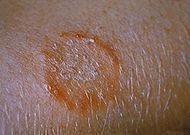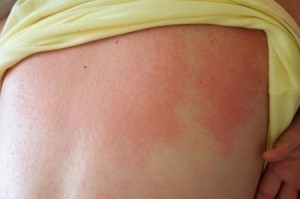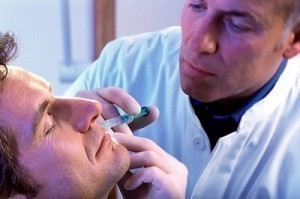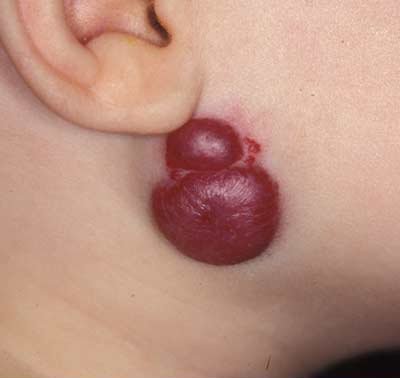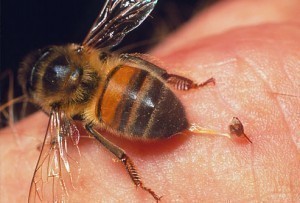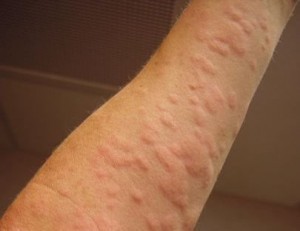Acne Treatment
Acne is known to be a common problem among teenagers. However, this disorder is also prone to strike anyone of any age. There are a lot of preventive measures one can take. And there are also acne treatments available for those who currently have this skin disorder. Nevertheless, those who have acne are advised to discern the myths from the facts regarding its treatment. Understanding its causes and who is prone to be affected will also help sifting what treatments work and which ones don’t.
Defining Acne
Acne is a skin disorder due to the action of the body’s hormones. This hormonal action is coincidental with other substances found on the skin’s hair follicles and oil glands. Conditions usually lead to plugged pores that result in lesion outbreaks that are referred to as pimples. Outbreaks are usually found on the back, face, neck, shoulders, and chest.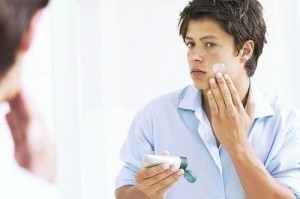
Though this disorder isn’t classified as a serious threat to one’s health, it is usually a significant source of emotional distress among those who suffer from it. A severe case of acne may even end up in permanent scarring, which is a good enough reason to take this disorder seriously.
Who are Affected by Acne
There is no specific age or race affected by this skin disorder. Acne can affect anyone, though it is observed that it affects more young adults and adolescents. 80% of all the people around the world who are between the ages of 11 and 30 will have lesion outbreaks at some point. Most people tend to naturally overcome this disorder by their thirties though a few have been found to suffer from it in their 40’s or 50’s.
Causes of Acne
Medical authorities will be ready to tell you that the exact cause of this skin disorder is really unknown. Though its development from related factors is known, the actual cause of the disorder is yet to be found. However, doctors believe that acne results from the said factors. These said factors relating to acne include the following:
Stress, picking blemishes, squeezing blemishes, changing hormone levels among adolescents, strong pressure on skin especially where acne is known to break out, oil that comes in contact with your skin from skin products and the environment (like grease from work or oil from frying vats). Take note that these factors do not necessarily cause acne.
Acne Myths
Sometimes when one looks for acne treatments you often come across the many myths associated with acne. One of the most prevalent of these myths is eating chocolate. Another one related to that is eating greasy food. The truth is there is almost no evidence that the food you eat cause acne. Another popular myth is having dirty skin causes acne. Unfortunately, blackheads and other kinds of lesions from acne aren’t caused by dirty skin.
Acne Treatments
Acne treatments shouldn’t be based on any myth regarding this skin disorder. If one is looking for acne treatments then it is in your best interest to seek help from dermatologists. General and family practitioners, internists, and pediatricians may also help but only for milder cases of acne.
The treatment of this disorder is aimed at healing a patient’s lesions, stop new ones from coming up, avoid scarring, and minimize any form of physiological stress. Depending on the severity of the disorder, doctors may prescribe medicines as part of acne treatments.
Treating Mild Acne
For mild inflammation, whiteheads, and blackheads, doctors will usually prescribe over the counter topical medicine or prescription. Some of the common topical medicines that doctors usually prescribe include the following: sulfur (breaks down whiteheads and blackheads), salicylic acid (breaks down whiteheads and blackheads; reduces shedding of hair follicle lining), resorcinol (breaks down whiteheads and blackheads), benzoyl peroxide (reduces oil production and destroys P. acne).
Take note that it may take eight weeks of topical treatment for you to get noticeable results. Make sure to treat acne regularly. Over the counter and topical medicines come in various forms like creams, soaps, lotions, gels, and even pads.
Moderate and Severe Acne Treatments
Doctors often treat moderate and severe acne using oral medication, prescription topical medicine, or a combination of both. Here are two of the medicines that doctors may prescribe to patients.
Vitamin A Derivatives: These allow topical medicines to enter the follicles by unplugging and decreasing the formation of comedones.
Topical Antibiotics: These reduce inflammations and stops bacteria growth.
Oral Antibiotics: These curb the growth of bacteria and reduce the amount of inflammation. Examples of oral antibiotics include minocycline, clindamycin, doxycycline, erythromycin, sulfonamides, and tetracycline.
Prescription topical medicines also come in the same forms as those used for mild acne breakouts. Some people experience minor side effects using medium to severe treatment medicine. Some of the minor side effects that people experience from this type of topical medication includes redness, peeling, burning feeling, skin discoloration, and scaling. Some people experience dizziness, upset stomach, increased sunburn tendency, lightheadedness and changes in skin color as minor side effects when taking oral antibiotics as acne treatments.
Treating Cystic and Severe Nodular Acne
Those who have cysts or nodules should immediately see their dermatologist. Any patient who has a condition of severe acne that shows no improvement after the medication previously mentioned will require a different kind of medication. Dermatologists may prescribe a retinoid, such as isotretinoin. This drug reduces the amount of bacteria by diminishing the size of a person’s oil glands.
This method of treatment is seen to be very effective but it has its disadvantages as well. Such types of medication shouldn’t be prescribed to women bearing children. These medicines can cause birth defects to a fetus that is developing. Women who are within child bearing age should use two methods of birth control while being treated using these medications and one month after treatment.
Other side effects some people experience with such type of medications include changes in their liver functions, itching, muscle aches, nosebleeds, poor vision at night, sensitivity to sunlight, dry eyes, mouth, lips, nose, or skin, and an increase in blood fat and other changes in a patient’s blood.
Prescriptions for Women Who are Hormonally Influenced
If doctors find a hormonal cause for acne break outs, like excessive amounts of androgen in women for instance, then they may prescribe a few medicines to treat this kind of acne. Some of these prescriptions may include birth control pills, low-dose corticosteroid, and anti-androgen drugs.
Other Treatments
Doctors may opt for other treatments especially when treating scars or when early treatment is possible. Doctors may inject corticosteroids directly on a patient’s lesions, remove comedones, laser treatment, dermabrasion, transferring body fat, synthetic filling, and other medical or surgical procedures as acne treatments.
Prevention
Of course, like any other disease or disorder, the best acne treatments out there are those that prevent them from ever occurring. You should make it a habit to clean your skin gently, avoid rubbing or even touching skin lesions, shave carefully, avoid sunburns, and choose your cosmetics carefully.

